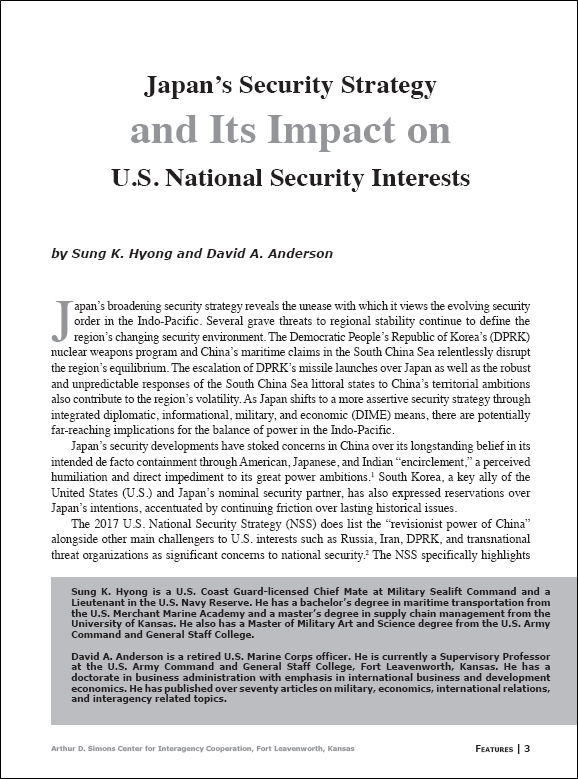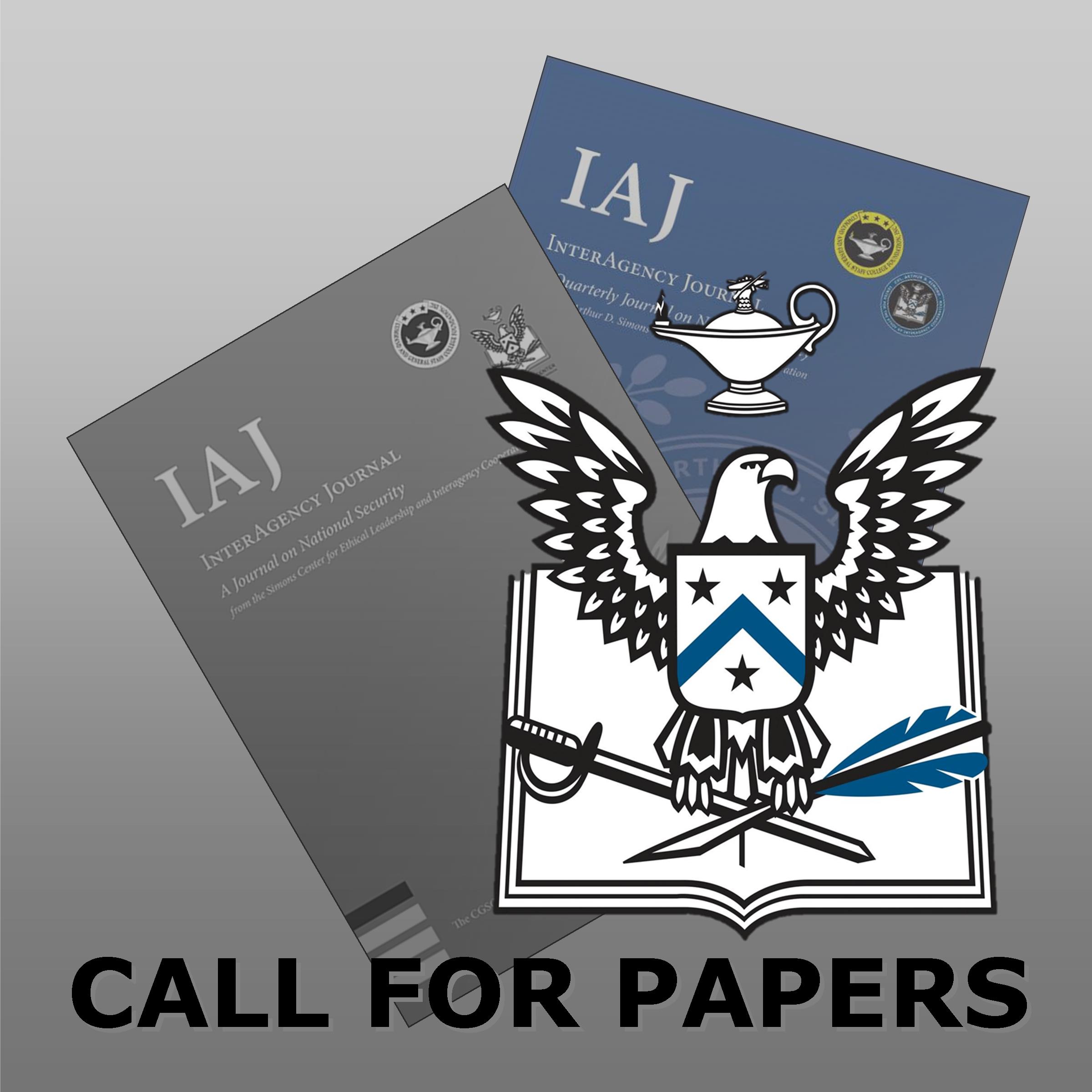Featured Article: Japan’s Security Strategy…
Featured article:
Japan’s Security Strategy and Its Impact on U.S. National Security Interests
by Sung K. Hyong and David A. Anderson
Japan’s broadening security strategy reveals the unease with which it views the evolving security order in the Indo-Pacific. Several grave threats to regional stability continue to define the region’s changing security environment. The Democratic People’s Republic of Korea’s (DPRK) nuclear weapons program and China’s maritime claims in the South China Sea relentlessly disrupt the region’s equilibrium. The escalation of DPRK’s missile launches over Japan as well as the robust and unpredictable responses of the South China Sea littoral states to China’s territorial ambitions also contribute to the region’s volatility. As Japan shifts to a more assertive security strategy through integrated diplomatic, informational, military, and economic (DIME) means, there are potentially far-reaching implications for the balance of power in the Indo-Pacific.
Japan’s security developments have stoked concerns in China over its longstanding belief in its intended de facto containment through American, Japanese, and Indian “encirclement,” a perceived humiliation and direct impediment to its great power ambitions. South Korea, a key ally of the United States (U.S.) and Japan’s nominal security partner, has also expressed reservations over Japan’s intentions, accentuated by continuing friction over lasting historical issues.
The 2017 U.S. National Security Strategy (NSS) does list the “revisionist power of China” alongside other main challengers to U.S. interests such as Russia, Iran, DPRK, and transnational threat organizations as significant concerns to national security. The NSS specifically highlightsthe gravity of China’s revisionist potential, identifying its ambitions to “displace the United States in the Indo-Pacific region, expand the reaches of its state-driven economic model, and reorder the region in its favor”…
Read the full article
Japan’s Security Strategy and Its Impact on U.S. National Security Interests PDF
Download the complete edition
IAJ 10-1 (2019) pdf
IAJ 10-1 (2019) ePub
Sung K. Hyong is a U.S. Coast Guard-licensed Chief Mate at Military Sealift Command and a Lieutenant in the U.S. Navy Reserve. He has a bachelor’s degree in maritime transportation from the U.S. Merchant Marine Academy and a master’s degree in supply chain management from the University of Kansas. He also has a Master of Military Art and Science degree from the U.S. Army Command and General Staff College.
David A. Anderson is a retired U.S. Marine Corps officer. He is currently a Supervisory Professor at the U.S. Army Command and General Staff College, Fort Leavenworth, Kansas. He has a doctorate in business administration with emphasis in international business and development economics. He has published over seventy articles on military, economics, international relations, and interagency related topics.

Posted: February 27, 2019 by Simons Center
"*" indicates required fields


